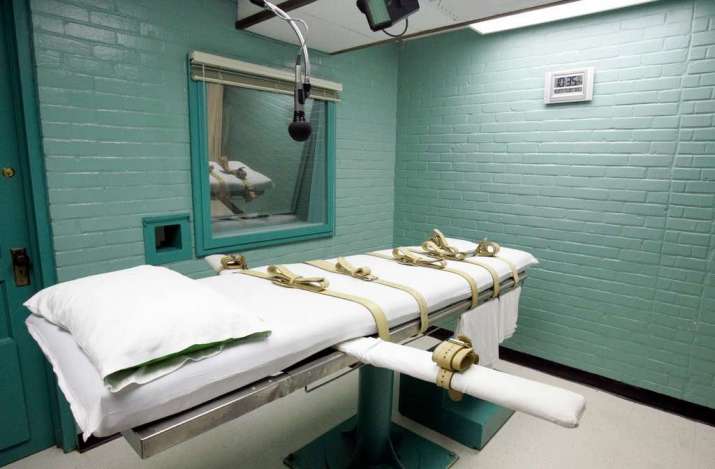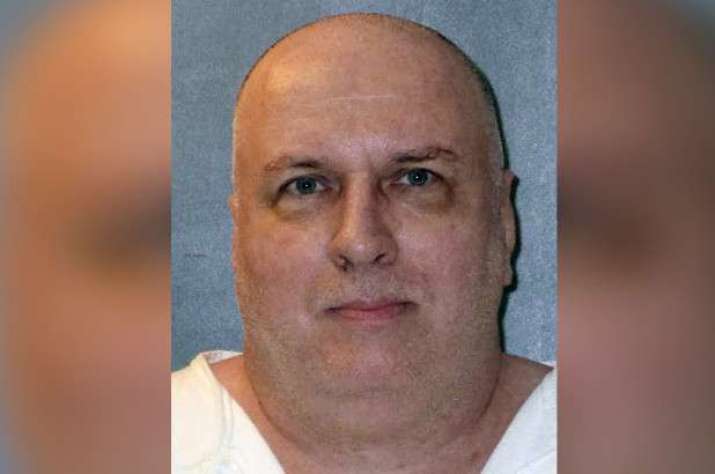
Patrick Murphy, a Pure Land Buddhist practitioner and death row inmate in Texas, was given a stay of execution by the US Supreme Court late on Thursday. He was scheduled to be executed later that night. Murphy was convicted of capital murder for his role in the death of a Texas police officer in 2000.
Murphy had requested that his Buddhist priest, Rev. Hui-Yong Shih, be present with him at the time of the execution so that the two could chant together during the process, however Texas Department of Criminal Justice (TDCJ) officials claimed that there were safety concerns with allowing the priest into the execution chamber, and because Rev. Shih is not an employee of the Texas Department of Criminal Justice he is not allowed to enter the execution chamber. The state only employs Christian and Muslim chaplains, who are allowed to present with dying prisoners.
Murphy alleges that his First Amendment right to freedom of religion is thus being violated. While federal district and circuit courts did not grant him a stay, the US Supreme Court did.
In an unsigned letter the court stated briefly, “The state may not carry out Murphy’s execution pending the timely filing and disposition of a petition for a writ of certiorari unless the state permits Murphy’s Buddhist spiritual advisor or another Buddhist reverend of the State’s choosing to accompany Murphy in the execution chamber during the execution.” (Supreme Court)

Murphy and six other inmates, known as the “Texas Seven,” had escaped from a maximum-security state prison in 2000 and were at large for more than a month after killing police officer Aubrey Hawkins.
Murphy claims to have converted to Pure Land Buddhism while in prison. His petition states, “Accordingly, Murphy believes it is possible for him, after death, to be reborn in the Pure Land, a place where he could work toward enlightenment.” (Courthouse News).
Justices Clarence Thomas and Neil M. Gorsuch would have allowed the execution to proceed, according to the order. Justice Brett M. Kavanaugh wote a concuring opinion, siding with the stay of execution, stating that, “As this Court has repeatedly held, governmental discrimination against religion—in particular, discrimination against religious persons, religious organizations, and religious speech—violates the Constitution. The government may not discriminate against religion generally or against particular religious denominations.”
Justice Kavanaugh stated, “In this case, the relevant Texas policy allows a Christian or Muslim inmate to have a state-employed Christian or Muslim religious adviser present either in the execution room or in the adjacent viewing room. But inmates of other religious denominations—for example, Buddhist inmates such as Murphy—who want their religious adviser to be present can have the religious adviser present only in the viewing room and not in the execution room itself for their executions. In my view, the Constitution prohibits such denominational discrimination.” (Supreme Court)
For equal protection under the law, Justice Kavanaugh continued, the state of Texas must either allow all inmates to have a religious adviser present in the execution room or to keep all spiritual advisers in the adjacent viewing room. He concluded, “What the State may not do, in my view, is allow Christian or Muslim inmates but not Buddhist inmates to have a religious adviser of their religion in the execution room.” (Supreme Court)
In an amicus brief supporting Murphy’s claim, The Becket Fund for Religious Liberty, a non-profit legal aid group dedicated to preserving religious rights, wrote, “The close, personal presence of his spiritual advisor or another Buddhist spiritual advisor is particularly important to Murphy, because they will engage in chants intended to help Murphy focus on Buddha at the moment of his death. Id. TDCJ’s alternative suggestion that Murphy’s spiritual advisor observe from another room is thus inadequate. There is no meaningful alternative to the presence of a Buddhist spiritual advisor at the time of Murphy’s death.” (Amicus Brief, Supreme Court)
See more
Patrick Henry Murphy v. Bryan Collier (Supreme Court)
Patrick Murphy Lawsuit (Courthouse News)
Amicus Curiae of the Becket Fund for Religious Liberty in Support of Petitioner (Amicus Brief, Supreme Court)














